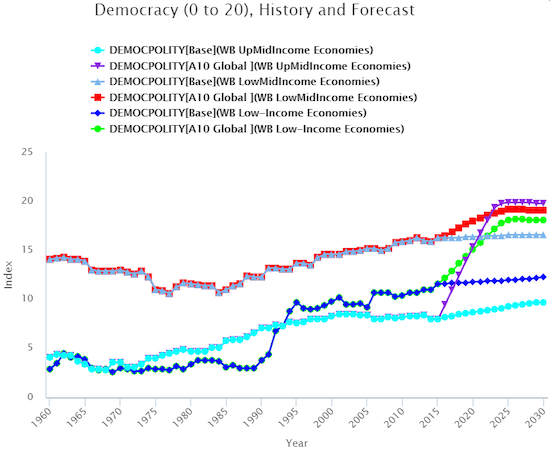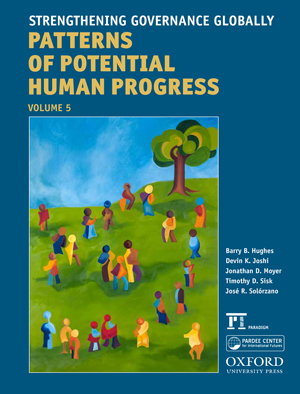Governance
Governance describes the process and nature of interactions between governments and their citizens, and good governance supports human development by providing a secure environment, increasing the capacity of individuals and societies for development, and promoting inclusive participation in societal endavors and rewards. In turn, the absence of good governance diminishes or actively discourages one or more of these outcomes.
With IFs we can explore how governance has evolved over time and how it might evolve going forward. The graph displays how the extent of democracy has changed within global regions since 1960 and how it might further change by 2030. As in other examples in this section, we explore two scenarios: the IFs Base Case and an alternative scenario, in which societies make focused efforts to strengthen governance through a series of coordinated interventions:
- Increasing domestic government spending on education, health, and R&D
- Improving gender equality in education
- Extending water and sanitation infrastructure; increasing economic freedom and domestic openness
- Increasing foreign aid
Higher values on the graph signify more democratic systems, while lower values suggest more autocratic regimes.


